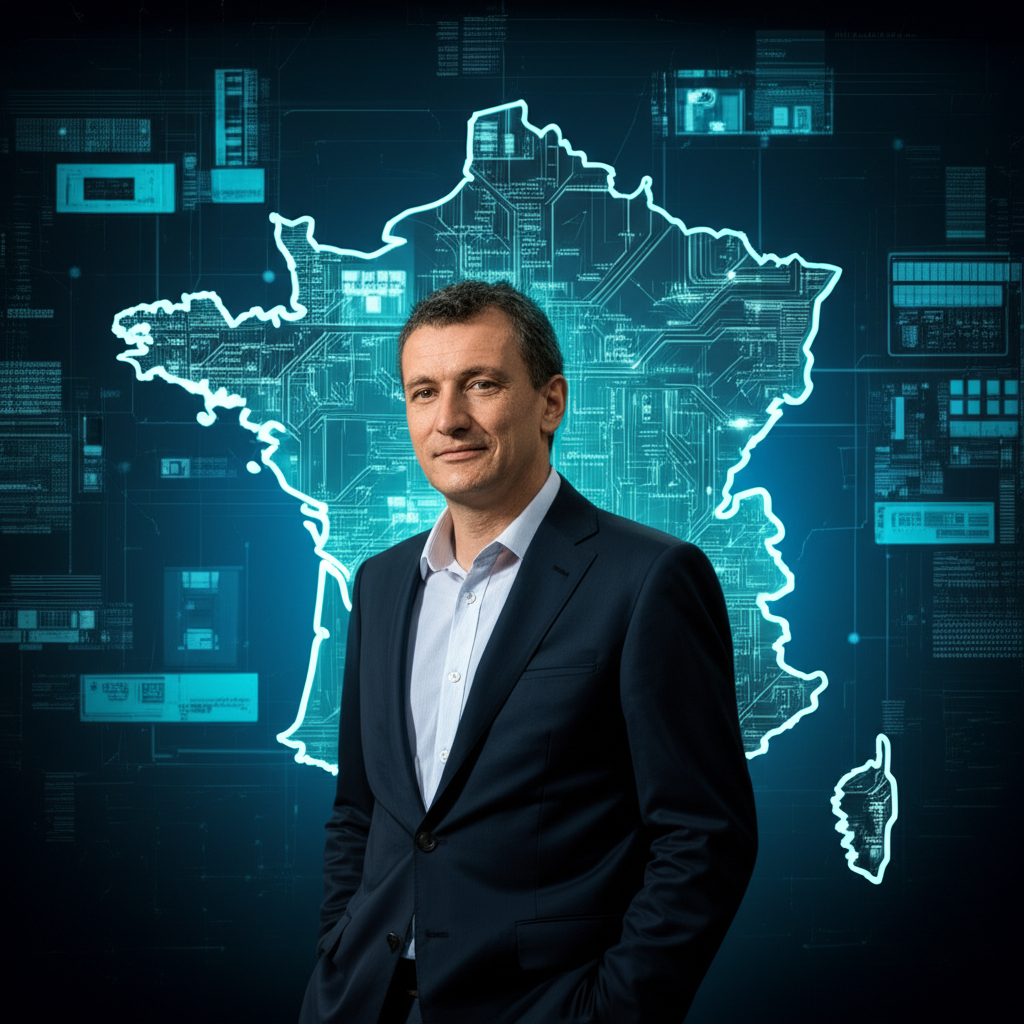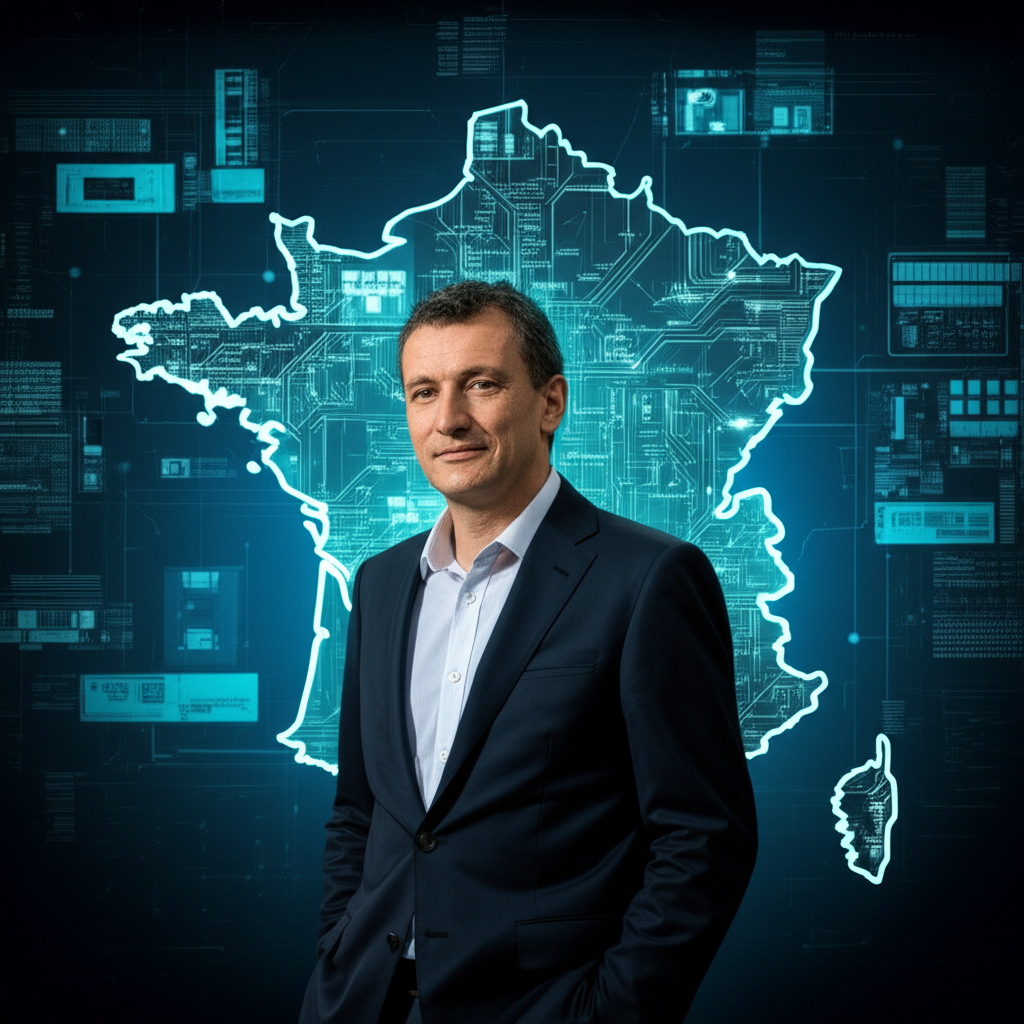Introduction: Xavier Niel’s Bold Vision for French AI

In a defining moment for France’s technological future, billionaire innovator Xavier Niel unveiled a sweeping €200 million commitment to elevate the nation into the upper echelon of global artificial intelligence. Announced in late September 2023, this bold initiative transcends traditional investment—it’s a strategic blueprint to anchor French leadership in AI through sovereign infrastructure, homegrown innovation, and elite talent retention. At its core is a mission to break free from dependence on foreign tech ecosystems by building domestic capabilities from the ground up. Niel’s vision hinges on deploying cutting-edge hardware, particularly through a pivotal collaboration with NVIDIA, to create a high-performance computing environment where French researchers and startups can thrive without constraints.
The €200M Investment: Fueling France’s AI Supercomputer Ambitions

The centerpiece of Niel’s commitment is the development of a state-of-the-art AI supercomputer, funded entirely by his €200 million contribution. This investment is directed toward acquiring advanced computing systems, establishing secure data centers, and assembling the operational framework necessary to power next-generation AI research. With performance metrics rivaling top-tier global labs, the supercomputer will offer French institutions and emerging tech ventures access to computational resources previously out of reach. Such capacity is essential for training large language models and running complex simulations—tasks that require immense processing power. As highlighted by TechCrunch, this move positions France to accelerate its AI capabilities independently, ensuring the country isn’t merely a consumer of AI technology but an active creator and shaper of it.
NVIDIA’s Critical Role: Powering the Next Generation of French AI

Integral to the success of this project is Xavier Niel’s strategic alliance with NVIDIA, the undisputed leader in AI acceleration. The supercomputer will be powered by thousands of NVIDIA H100 GPUs—chips widely recognized as the gold standard for AI training and inference workloads. These processors deliver exceptional parallel computing performance, enabling faster model iteration and more sophisticated algorithm development. By choosing NVIDIA’s latest architecture, France ensures its AI infrastructure is not just competitive today but scalable for future advancements. This partnership isn’t merely transactional; it reflects a shared ambition to push the boundaries of what’s possible in AI research, while reinforcing Europe’s ability to innovate without relying on overseas platforms.
French AI Sovereignty: A National Imperative

At the heart of Niel’s initiative lies the pursuit of AI sovereignty—a concept now central to France’s national strategy and broader European digital policy. True sovereignty means having full control over critical technologies, data governance, and the ethical frameworks guiding AI deployment. For years, European researchers have been forced to rely on cloud platforms and computing resources based in the U.S. or Asia, often compromising data autonomy and strategic flexibility. Niel’s investment aims to reverse this trend by creating a self-reliant AI ecosystem rooted in French soil. This shift empowers local developers to train models on domestic data, comply with GDPR and EU regulations, and align technological progress with European values such as transparency, fairness, and accountability.
Retaining Talent and Fostering an Ecosystem
One of the most persistent challenges facing France’s tech sector has been the exodus of top AI researchers to Silicon Valley and other international hubs offering superior funding and infrastructure. Niel’s supercomputer project directly addresses this “brain drain” by offering a compelling reason for talent to stay: access to world-class tools and a vibrant local innovation environment. With high-performance computing now available domestically, PhD candidates, postdoctoral researchers, and AI engineers no longer need to leave France to conduct cutting-edge work. Beyond infrastructure, the initiative stimulates a multiplier effect—startups can launch with confidence, knowing they have scalable resources, while academic institutions gain new opportunities for collaboration. The result is a self-sustaining ecosystem where talent, capital, and ideas converge to drive long-term growth.
Xavier Niel’s Broader AI Strategy: Beyond the Initial €200M
While the supercomputer represents a foundational leap, it’s only one piece of a much larger strategy. Xavier Niel is actively shaping the French AI landscape through direct support of early-stage ventures, most notably H. AI—a Paris-based startup positioned as a European challenger to giants like OpenAI and Google DeepMind. Backed by a record-breaking €220 million seed round, H. AI is focused on developing foundational AI models tailored for European languages and regulatory contexts. Niel’s involvement goes beyond capital; he brings his entrepreneurial network and operational expertise to help scale the company rapidly. This dual focus—on infrastructure and innovation—demonstrates a holistic approach to nation-building in the digital age. As reported by the Financial Times, Niel isn’t just funding technology—he’s cultivating a movement.
Geopolitical and Economic Implications for European AI
Niel’s actions carry ripple effects far beyond France’s borders. In an era defined by technological competition between the U.S. and China, Europe has struggled to assert its presence in AI at scale. This investment strengthens the EU’s collective push for digital sovereignty, offering a model other member states may follow. Economically, a thriving AI sector could unlock billions in value across healthcare, energy, transportation, and finance, while generating high-skilled jobs and attracting global partnerships. Moreover, by proving that private visionaries can catalyze national transformation, Niel sets a precedent for public-private collaboration. His leadership signals that Europe can compete—not by replicating Silicon Valley, but by building a distinct AI identity grounded in ethics, inclusivity, and strategic independence.
Challenges and the Road Ahead for French AI
Despite its promise, the path to AI leadership is fraught with obstacles. Global competition for skilled engineers remains intense, and retaining them requires more than just hardware—it demands a culture of innovation, competitive salaries, and long-term career pathways. The cost of maintaining and upgrading a supercomputer is ongoing, necessitating sustained investment from both private and public sectors. Additionally, France must navigate evolving AI regulations, including the EU AI Act, which imposes strict compliance requirements on high-risk systems. Balancing rapid development with responsible innovation will be key. Success ultimately depends on coordination: universities must align curricula with industry needs, policymakers should streamline funding mechanisms, and companies need to collaborate openly to maximize impact.
Conclusion: A New Era for French AI
Xavier Niel’s €200 million investment marks the beginning of a transformative chapter in France’s technological journey. Fueled by NVIDIA’s H100 GPUs and amplified by ventures like H. AI, this initiative lays the foundation for genuine AI sovereignty. It’s not just about processing power—it’s about reclaiming control over France’s digital destiny, nurturing local genius, and building an ecosystem capable of standing toe-to-toe with global leaders. As the supercomputer comes online and startups begin to scale, the effects will be felt across academia, industry, and governance. With vision, resources, and determination, France is no longer waiting on the sidelines of the AI revolution—it is stepping forward to shape it.
What is the primary objective of Xavier Niel’s €200 million investment in artificial intelligence?
The primary objective is to build a powerful AI supercomputer in France to foster French AI sovereignty, retain talent, and enable advanced research and development, reducing reliance on foreign tech.
How will NVIDIA’s technology contribute to France’s AI development plans spearheaded by Niel?
NVIDIA’s H100 GPUs will provide the critical computational power for the AI supercomputer, forming the technological backbone necessary for training large language models and complex AI algorithms.
Beyond the initial €200M, what other initiatives has Xavier Niel undertaken to boost French AI?
Beyond the supercomputer, Niel has invested significantly in promising French AI startups, notably co-founding and heavily funding H. AI, which aims to develop foundational AI models.
What is the significance of building a large AI supercomputer in France for national sovereignty?
It ensures France has control over its critical AI infrastructure and intellectual property, reduces dependence on foreign tech, and enables the nation to develop AI aligned with its own ethical standards and strategic interests.
Which specific NVIDIA GPUs are being utilized in Xavier Niel’s French AI project?
The project is utilizing thousands of NVIDIA H100 GPUs, which are renowned for their high performance in AI training and inference tasks.
How does this investment compare to other major AI initiatives in Europe or globally?
Niel’s investment is one of the most significant private initiatives in European AI infrastructure, positioning France to compete with large-scale government and corporate AI projects globally, particularly in supercomputing and foundational model development.
What are the projected timelines for the development and operationalization of this AI infrastructure?
The initial announcement for the €200M supercomputer was in late September 2023, with the goal of rapid deployment to support research and development activities soon after.
Will Niel’s investment primarily focus on specific AI research areas, such as large language models or robotics?
While the supercomputer will support a broad range of AI research, Niel’s broader strategy, including the H. AI startup, has a strong focus on developing foundational large language models.
How is this project expected to foster local talent and prevent brain drain in the French tech sector?
By providing world-class infrastructure and research opportunities, the project aims to attract and retain top AI scientists and engineers within France, creating a vibrant domestic ecosystem.
What potential economic benefits or challenges might arise from this significant private investment in French AI?
Benefits: Job creation, increased innovation, attraction of further investment, and enhanced global competitiveness. Challenges: Intense competition for talent, the need for continuous funding, and the complexities of AI governance and ethical development.

留言